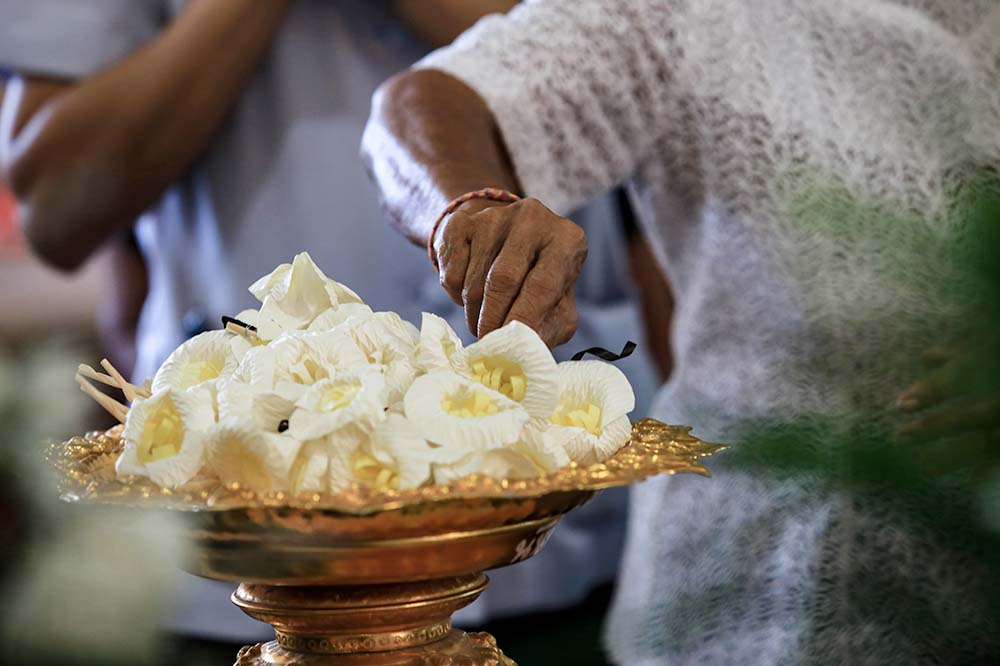One of the world’s oldest and most widespread religions, Hinduism has a rich and diverse culture with unique customs and traditions. This is especially evident in the rituals surrounding death and funerals, which vary significantly across different regions and communities within the Hindu faith. In this blog post, we will explore the cultural variations in Hindu funerals, shedding light on the regional practices and differences that make each funeral ceremony a unique and meaningful experience. From elaborate cremation ceremonies to more superficial burial rituals, join us as we delve into the fascinating world of Hindu funeral customs and their significance in different cultures and communities.
Understanding the Basic Hindu Funeral Rites
Several key elements must be considered when understanding the introductory Hindu funeral rites. First and foremost, Hindus believe in the cycle of birth, death, and rebirth, known as reincarnation. This belief shapes their approach to death and the rituals surrounding it.
One of the most common funeral rituals in Hinduism is the cremation ceremony. Hindus believe that the body is a vessel for the soul, and by cremating the body, the soul is released from its physical form and can move on to the next life. The cremation ceremony is often conducted at a crematorium or a designated area near a river, as water is considered sacred in Hinduism. Another essential aspect of Hindu funeral rites is the mourning period, known as “antim sanskar.” This period typically lasts for thirteen days, during which family and friends gather to offer prayers, recite religious texts, and pay their respects to the deceased. It is a time for reflection, remembrance, and seeking closure.
Throughout these funeral rites, the presence of a priest is essential. The priest performs religious ceremonies, recites prayers, and guides the family through the rituals. They are vital in ensuring the departed soul finds peace and can transition to its next life.
Understanding these basic Hindu funeral rites provides a foundation for exploring the diverse and unique customs practised across different regions and communities within the Hindu faith. Let us delve deeper into the geographical influences, cultural differences, and notable regional practices in Hindu funerals as we unravel the rich tapestry of Hinduism.
Geographic Influences on Hindu Funerals
Hindu funerals are deeply influenced by the geographical locations in which they take place. The diversity in regional practices reflects the varied landscapes and cultural traditions of different Hindu communities. For example, in the northern regions of India, where the Ganges and Yamuna flow, cremations are often conducted near the banks of these sacred rivers. The belief is that immersing the ashes in these holy waters will purify the departed soul and facilitate its journey to the afterlife. In southern India, though it is harder to find significant bodies of water, the family will either send the ashes with a family member who lives closer to the Ganges or another body of water, or the ashes will be dispersed from a mountaintop where the wind blows towards the sacred river. These geographical influences contribute to the rich tapestry of Hindu funeral customs, showcasing the diverse traditions within this ancient and widespread religion.
Cultural Differences within Hindu Communities
Hindu funeral customs vary significantly within different communities, adding to the rich tapestry of Hinduism. Cultural differences within Hindu communities influence the way funeral rituals are performed and the significance they hold. For example, in some communities, it is customary for mourners to wear white clothing to symbolise purity and respect; in others, bright colours are preferred to celebrate the deceased’s life. Additionally, the type and scale of funeral ceremonies can also differ significantly. Some communities may have elaborate and highly ritualistic ceremonies, while others may opt for more unadorned and intimate gatherings. These cultural differences highlight the diversity within Hinduism and showcase the unique customs and traditions that make each community’s funeral ceremonies a truly meaningful experience.
Role of Gender and Caste in Hindu Funerals
Hindu funerals are also influenced by gender and caste, adding another layer of complexity to the cultural variations within the Hindu faith. Traditionally, the roles and responsibilities during funeral rituals are divided based on gender and caste. In some communities, men may take on the role of conducting the cremation ceremony, whilst women are responsible for preparing the body for cremation and attending to the grieving family. Caste also plays a significant role, as certain rituals and responsibilities may be restricted to specific castes. However, it is important to note that these practices are not universal and can vary widely depending on the region and community. As Hinduism continues to evolve, there is a growing movement towards gender equality and inclusivity in funeral rites, with many communities embracing more egalitarian practices. This dynamic interaction between gender and caste adds another layer of cultural diversity to Hindu funerals, highlighting the intricate tapestry of customs within the faith.
From the geographical influences on funeral practices to the cultural differences within Hindu communities, each aspect contributes to the richness and complexity of Hindu funeral rituals. We have witnessed how gender and caste play a role in shaping funeral rites and how regional practices reflect the unique landscapes and cultural traditions of different Hindu communities. Furthermore, we have observed the evolving nature of Hindu funerals, with a growing emphasis on inclusivity and adaptability. The changing face of Hindu funerals is a testament to the dynamic nature of Hinduism and its ability to embrace new ideas while honouring its cultural heritage. Through this exploration, we have gained a deeper understanding of the significance and meaning behind each funeral ceremony and the importance of honouring and celebrating the lives of the departed.
If you would like to learn more about our bespoke Hindu funerals and how we customise them to reflect the wishes of the family, contact us today!










